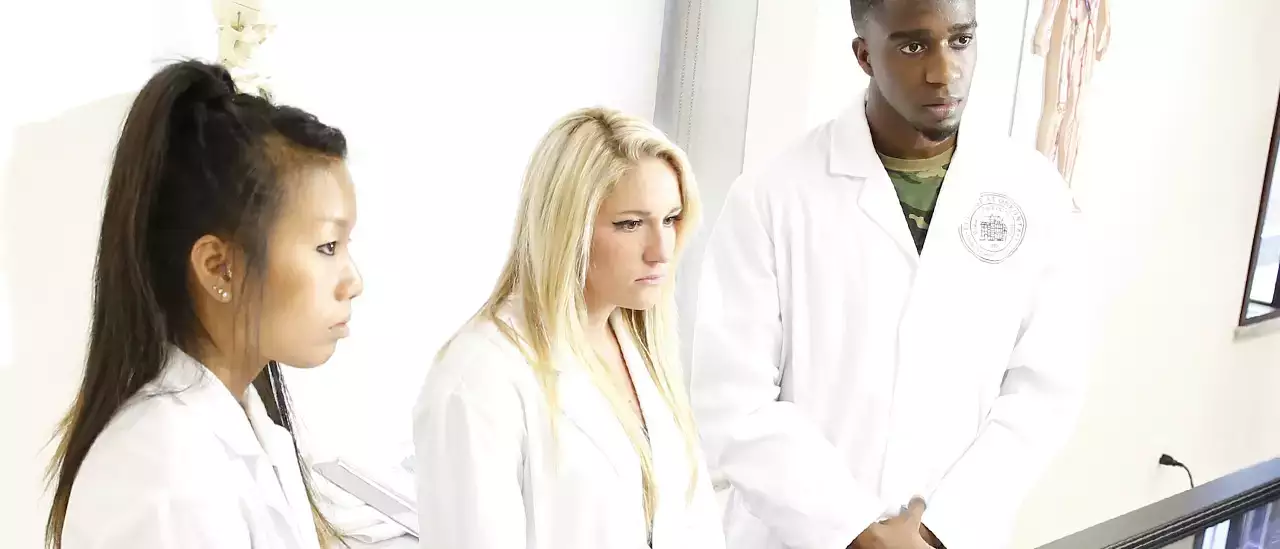SUNY Oneonta's Office of Health Careers provides specialized guidance and support for students preparing to apply to nursing school to be a Registered Nurse (RN).
Accelerated B.S. in Nursing
To become a Registered Nurse (RN), you must earn a degree in Nursing and pass the NCLEX Licensures exam in your state. While SUNY Oneonta does not have a clinical Nursing Program, there are several options available for students who plan to pursue a career in nursing after completing their Bachelor's degree at SUNY Oneonta. An accelerated program leading to a Bachelor of Science in Nursing (BSN) is the typical path SUNY Oneonta graduates pursue in their path to become licensed as an RN.
New York Governor Andrew Cuomo enacted the “BSN in 10” law which requires all future RNs licensed after Dec. 19, 2017 to complete a Bachelor’s Degree in Nursing within 10 years of initial licensure. For more information regarding NYS Licensure Requirements, visit the New York State Education Office of Professions.
Highly qualified SUNY Oneonta students have the opportunity to apply for Early Assurance at Utica University's School of Nursing. Additional information, including qualifying criteria, can be found on our Health Professional School Articulation page.
What is Nursing?
"Nursing offers a wide range of career opportunities—from entry-level practitioner to doctoral-level researcher. Nurses are hands-on health professionals who provide focused and highly personalized care. Nurses promote health, prevent disease and help patients cope with illness. They have a unique scope of practice and can practice independently, although they also collaborate with all members of the health care team to provide the care needed by each patient as an individual. Nurses advocate for their patients and patients’ families. They develop and manage nursing care plans and instruct patients and their families in proper care. As educators, they help whole communities by teaching individuals and groups how to take steps to improve or maintain their health."
- ExploreHealthCareers.org
Learn More
For additional information regarding schools of nursing, visit AACNnursing.org.
Prerequisite Courses & Electives
Students must consult SUNY Oneonta's current undergraduate catalog for course descriptions, prerequisites, and time of year when courses are offered to plan properly in advance.
Prerequisites for Nursing School:
- BIOL 1001: Investigative Biology Laboratory
- BIOL 1002: Cellular Perspectives in Biology
- BIOL 1004: Organismal Perspectives in Biology (Preferred) or BIOL 1006: Ecological and Evolutionary Perspectives in Biology
- BIOL 2000: Cell & Molecular Biology (Prerequisite for BIOL 3106)
- BIOL 3106: Microbiology
- BIOL 3202: Human Anatomy & Physiology I
- BIOL 3204: Human Anatomy & Physiology II
- CHEM 1111: General Chemistry I
- CHEM 1121: General Chemistry II
- COMP 1000: Composition
- NUTR 1050: Nutrition in Everyday Life
- PHIL 1200: Ethics or PHIL 3250: Bioethics
- PSYC 1000: Introductory Psychology
- PSYC 2450: Lifespan Development
- SOC 1001: Introduction to Sociology or ANTH 1000: Intro to Cultural Anthropology
- STAT 1010: Introduction to Statistics
A minimum grade of C or higher is typically required in each prerequisite course, however grades of B or higher are recommended. Though a strong application includes a prerequisite and overall GPA greater than 3.0, programs are seeking applicants that are well-rounded in educational and life experience and can articulate an understanding of the career and vision for themselves in the Profession.
Nursing education programs may change course prerequisites at any time and may have additional requirements, preferences, or policies that are not reflected in this prerequisite course list and may vary depending on the type of nursing program to which a student applies. Programs may also allow applicants to substitute courses or choose different prerequisite courses. Applicants should review the program-specific details and contact programs directly to determine whether a particular course will fulfill a prerequisite. Some nursing programs also require additional courses in Composition, Pathophysiology, or Pharmacology.
Students have the responsibility to check entrance requirements for schools to which they intend to apply.
Nursing School Requirements
Students should regularly review the Nursing Program Admission Requirements for the type of program they are pursuing.
Applicants are evaluated on:
- healthcare experience (required direct patient care experience varies for each program)
- minimum of three letters of evaluation (Clinician, Professor in your Major, Health Care Job Supervisor)
- GPA (overall and prerequisite courses)
- leadership skills (on and off campus)
Application Timeline
Application to Nursing programs can be made through the centralized application NursingCAS or directly through the individual nursing school.
- The Application Cycle varies depends on the individual nursing program and the year and term students to which students apply.
- Students should consult the individual programs for application cycle planning.
- Applicants are encouraged to submit their nursing school applications as early in the cycle as possible as it can take 4-6 weeks for your application to be processed.
- Please review the NursingCAS Applicant Help Center if you have any additional questions.
Letters of Evaluation
Students generally request three letters of evaluation to be submitted on their behalf for nursing program applications. Appropriate evaluators include science faculty, other course instructors, healthcare professionals, current or former employers, and professional references.
